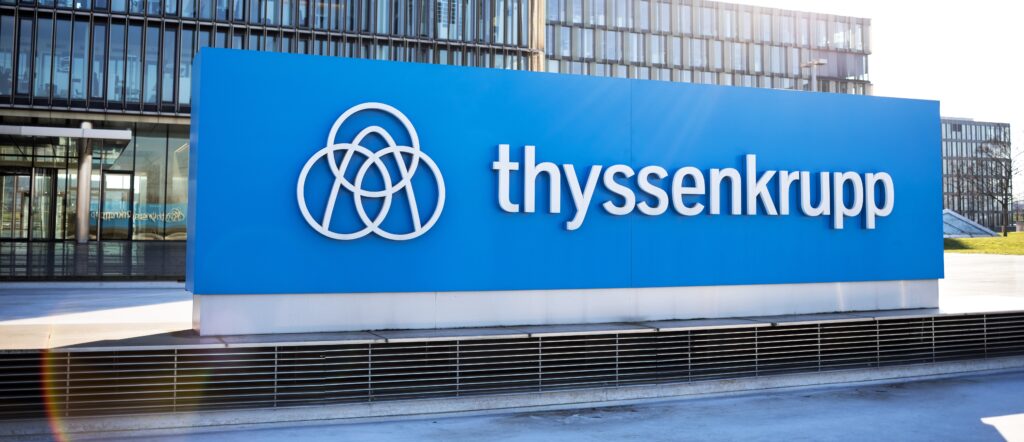German industrial giant Thyssenkrupp has released a financial report that presents a mix of challenges and progress. The company continues to face a tough market but has improved its profitability. The report highlights strategic restructuring, cost-cutting efforts, and rising demand in key sectors.
Smaller Losses Despite Lower Revenue
Thyssenkrupp reported a net loss of €33 million for the quarter from October to December. This is a big improvement compared to the €305 million loss in the same quarter last year. However, total sales fell to €7.8 billion, down from €8.2 billion in the previous year. The decline was due to lower demand and falling prices in certain markets.
Despite the drop in sales, the company’s financial measures have helped stabilize performance. CFO Jens Schulte emphasized the effectiveness of these efforts. “Despite the tough market, we improved our performance in the first quarter,” he said.
Thyssenkrupp’s adjusted Earnings Before Interest and Taxes (EBIT) rose to €191 million. Schulte credited this to efficiency improvements. “The increase in EBIT shows that our cost-saving and efficiency strategies are working,” he added. “We will continue these measures to strengthen the company.”
Strong Orders in the Marine Division
A significant boost came from Thyssenkrupp’s marine division, which benefited from new defense contracts. The company’s order intake surged by over 50% year-on-year, reaching €12.5 billion. This rise was mainly due to increased demand for military ships and submarines.
Additionally, free cash flow before mergers and acquisitions remained negative at €21 million. However, this was much better than the €531 million loss recorded a year earlier. Advanced payments for a major naval project helped improve cash flow.
For the full fiscal year 2024/2025, Thyssenkrupp now expects positive free cash flow between €0 and €300 million. This is an upgrade from its earlier forecast of a €200-400 million loss.
Restructuring and Future Plans
CEO Miguel López highlighted the company’s transformation strategy. Thyssenkrupp is working on a spin-off of its European steel business. The company is also preparing to publicly list its marine division to take advantage of rising global defense spending.
“Our goal is to strengthen our businesses, drive sustainable growth, and protect jobs,” López stated. “Geopolitical events suggest demand will continue to rise. A separate marine division will help us make the most of this potential.”
The restructuring aims to make the company leaner and more competitive. Thyssenkrupp is also focusing on innovation in new industries, including green technology.
Expanding Decarbonization Technologies
One of Thyssenkrupp’s most promising areas is decarbonization technology. The company is investing in green steel production, hydrogen energy, and carbon capture solutions. These sectors have shown strong growth, with sales rising significantly compared to last year.
The company sees major potential in this field. “We are at the forefront of industrial decarbonization,” López said. “This will be a key pillar of our future growth.”
Financial Outlook for 2024/2025
Thyssenkrupp expects sales for the full 2024/2025 fiscal year to remain stable or decline slightly. This is a revision from its earlier prediction of 0-3% growth. However, the company’s adjusted EBIT is expected to range between €600 million and €1 billion. Net profit is projected to be between €100 million and €500 million.
López reassured investors that Thyssenkrupp remains focused on long-term stability. “We aim to build a more flexible company that can handle market changes,” he said. “Our focus is on delivering value for shareholders and driving innovation.”
Thyssenkrupp’s efforts to improve efficiency, cut costs, and expand into new sectors are showing results. The company remains confident about its ability to navigate economic challenges while capitalizing on opportunities in defense and green technology.
For more updates on global industry trends and business news, visit Newyork Mirror.


